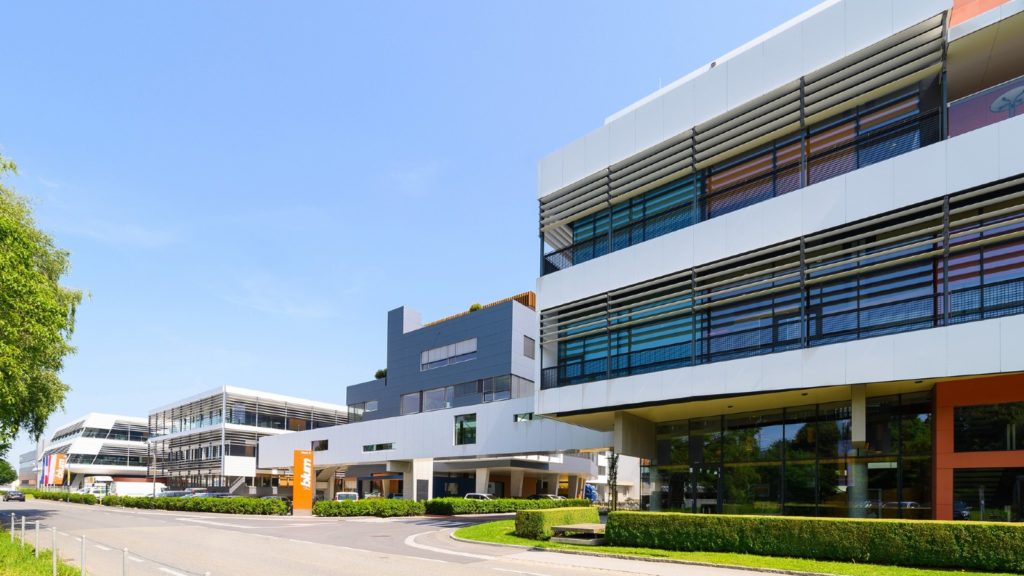Furniture fittings manufacturer Blum has recorded an 11.6% increase in turnover, a growth of €266million, for the 2021/2022 financial year ended June 30, 2022.

Managing director Philipp Blum commented on the results: “Consumers were again drawn to the homing and home improvement trend which remained strong during the last year. The demand for fittings has stabilised at a high level,”
The family-owned business from Vorarlberg, Austria, which is 70 years old, stated this was despite global challenges.
Sponsored Video
Philipp Blum stated: “The last business year has again proved to be a challenge due to the ongoing COVID pandemic and war in Ukraine. This makes the 11.2% increase in turnover all the more pleasing.”
However, Blum stated the growth was partly due to price inflation because of a hike in raw material and transportation costs, rather than volume sales alone.
The fittings manufacturer reported a “big” increase in turnover, particularly in Italy, Germany and the UK. However, the political situation had a subduing effect on markets in Eastern Europe.
Philip Blum commented: “We are shocked by Russia’s war of aggression on Ukraine which has inflicted untold suffering on many people since it was launched in February.
“The war in the middle of Europe is shattering peace on the European continent and shaking the foundations of stability.
“Although our colleagues in our Ukrainian subsidiary are as well as can be expected, their health and well-being are a constant concern.”
He also pointed to the impact on sales of the lockdown in Shanghai and other Chinese cities in the spring of 2022, which Blum said “put the brakes on growth” in China.
Philipp Blum said: “It has had a major impact on our customers there, but the Asian market has achieved good results on the whole.”
The company reported “satisfactory” business in North and South America but stated international transport routes have created new challenges for the company.
“Disruption is being caused by the war in Ukraine and the worldwide shortage of freight containers, heavy goods vehicles and drivers. The supply chain is still under severe pressure,” Philipp Blum added.
Blum also stated it is “guardedly” optimistic about future developments.
Philipp Blum explained: “We’re pleased that we’ve been able to greatly reduce lead times for many product groups by increasing production capacity and recruiting new members of staff over the past few months.”
Having already invested in its main production facilities, specifically in its plants in Bregenz, Hoechst und Gaissau, it now plans to expand production internationally.
Managing director Martin Blum stated: “To overcome global supply chain challenges and reduce our ecological footprint, we will expand our global production network – in Europe and internationally,”
Blum will complete a new plant in Shanghai and also have additional production space at its Polish subsidiary from 2023.
In the past financial year, investments worldwide totalled €339million.
For Martin Blum, one of the most important investments is in the training of skilled professionals. “Our programme of vocational training and ongoing education is designed to stem the shortage of skilled workers. We train 400 apprentices worldwide, 363 of whom in Vorarlberg.”
The company cited “motivated, committed and qualified” employees as one of Blum’s key success factors.
“We’ve pulled together and come through despite another challenging year which put enormous pressure on our organisation. That wouldn’t have been possible without our extraordinary team,” said Martin Blum.
Although the company indirectly relies on gas for steel production, Blum does use alternative energy sources, using solar panels, hydropower and heat recovery in its buildings and biogas for intersite truck transport.
Martin Blum added: “We are a founder member of the ‘turn to zero’ Alliance on Climate Neutrality 2025 and are committed to becoming climate neutral by addressing our corporate carbon footprint,”
Looking ahead, Blum is concerned about the high rate of inflation and rising cost of living on the market.
“People are having to think twice about how they spend their money. The fragility of international supply chains, complexity of transport logistics and volatility of raw material prices will remain a challenge”, reported Philipp Blum.
He stated the company needs to remain resilient and flexible to be able to respond and move forward.
“Only in this way will we remain a reliable partner – to both our customers and employees,” he concluded.



